Ticket Purchase

How does the growth of technology affect the business aspects of sports, such as ticket sales and broadcasting rights ?
The growth of technology has significantly transformed various aspects of business, including sports. Technology has revolutionized how activities like ticket sales and broadcasting rights are conducted, creating new opportunities for revenue generation and enhancing the fan experience. In this article, we will explore the ways in which technology has affected the business aspects of sports. One of the most significant impacts of technology on ticket sales is the emergence of online platforms. These platforms have made it easier for fans to purchase tickets from anywhere in the world, at any time. They also provide a more convenient and secure way of buying tickets, reducing the risk of fraud or counterfeit tickets. Mobile applications have also played a crucial role in transforming ticket sales. Fans can now purchase tickets directly from their smartphones, making the process even more convenient. Additionally, some apps offer features such as virtual ticket wallets, allowing fans to store their tickets digitally and access them easily on game day. Technology has also enabled the implementation of dynamic pricing models for sports tickets. This approach involves adjusting ticket prices based on factors such as demand, opponent, and time remaining until the event. By using data analytics tools, teams and organizations can optimize their pricing strategies to maximize revenue while still providing fair prices for fans. The rise of streaming services has had a profound impact on the broadcasting rights industry. These platforms allow fans to watch live sports events from anywhere with an internet connection, expanding the potential audience for sporting events. As a result, broadcasting rights fees have increased significantly, generating substantial revenue for sports leagues and organizations. Technology has also enhanced the viewing experience for fans through interactive features integrated into broadcasts. These features include things like real-time statistics, social media integration, and alternate camera angles. By providing a more engaging and personalized viewing experience, these technologies help attract and retain viewers, further increasing the value of broadcasting rights. Finally, advancements in virtual reality (VR) and augmented reality (AR) technologies are beginning to influence the broadcasting rights landscape. These technologies offer new ways for fans to experience sports events, such as virtual attendance or immersive replays. As these technologies become more widespread and affordable, they could potentially create additional revenue streams for sports organizations through specialized content offerings. In conclusion, the growth of technology has had a profound impact on the business aspects of sports, particularly in areas like ticket sales and broadcasting rights. By embracing these advancements and adapting their strategies accordingly, sports organizations can continue to thrive in an increasingly competitive marketplace while providing fans with unprecedented access and engagement opportunities.
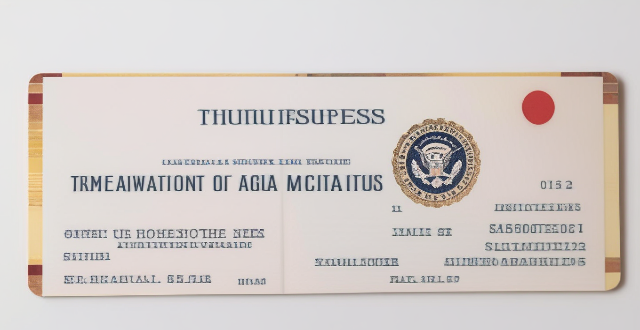
Is it necessary to have a return ticket for a tourist visa application ?
The text discusses the importance of a return ticket for a tourist visa application. It states that a return ticket is necessary to ensure the traveler has plans to return to their home country after the completion of their trip. Other documents required for a tourist visa application include a valid passport, hotel reservation, travel itinerary, financial evidence, invitation letter, travel insurance, application form, and photo. The return ticket is considered important as it shows the embassy or consulate that the traveler plans to return to their home country after their trip, reduces the chances of overstaying their visa period, assures the authorities of departure arrangements, and maintains the integrity of visa policies. If a traveler cannot provide a return ticket at the time of application, there is a high probability of visa rejection. However, an onward journey ticket can be provided as an alternative. Alternatives to a return ticket include one-way tickets, open-ended tickets, refundable tickets, and onward journey tickets. To ensure the availability of a return ticket, travelers should book in advance, choose flexible dates, opt for refundable tickets, and check with airlines about their policies. Not providing a return ticket can lead to visa rejection, blacklisting, impact future applications, and financial losses. Travel agents can assist in getting a return ticket or suggesting alternatives but may charge additional fees.

What are some smart ways to use coupons and promo codes ?
Using coupons and promo codes wisely can help you save money on your purchases. Here are some smart ways to use them: 1. Stack your coupons by using multiple coupons or promo codes on a single purchase for extra savings. 2. Combine coupons with sales by waiting for an item to go on sale and then using a coupon or promo code to get an even better deal. 3. Use coupons for high-value items to maximize your savings, especially on big ticket items like electronics or furniture. 4. Look for free shipping offers before making a purchase to avoid unnecessary shipping costs. 5. Sign up for retailer newsletters to get access to exclusive coupons and promo codes, as well as early access to sales and promotions.

Is there a minimum purchase amount to qualify for the limited-time offer ?
Minimum purchase amount required for limited-time offer; benefits and tips for customers.

What is the difference between a duty-free and tax-free purchase ?
The difference between a duty-free and tax-free purchase is that the former is exempt from customs duties, typically made in international travel hubs, while the latter is exempt from sales tax or VAT, can be made anywhere within a country.

Is it possible to hide my purchase history in my Apple account ?
Hide your purchase history in your Apple account by following these steps: sign in to your Apple ID account, go to the "Account" section, find the "Purchase History" option, click on the "Hide All" button, confirm the action, and check your purchase history.

How do I apply a coupon code to my online purchase ?
Applying a coupon code to your online purchase is easy and can save you money. Here's a step-by-step guide on how to do it: Step 1: Find the Coupon Code First, find the coupon code on the retailer's website or through third-party coupon websites. Make sure to copy the code exactly as it appears. Step 2: Add Items to Your Cart Next, add the items you want to purchase to your cart and proceed to checkout. Step 3: Enter the Coupon Code During the checkout process, enter the coupon code in the designated box. Be careful with capitalization, check for expiration dates, and look for any restrictions. If the code is valid, you should see the discount applied to your total. Step 4: Complete Your Purchase After applying the coupon code, complete the rest of the checkout process as usual, including entering your shipping and payment information. If the code doesn't work, double-check that you entered it correctly and that it hasn't expired or reached its usage limit. If you're still having trouble, contact the retailer's customer service for assistance.

What are some innovative ways sports event organizers have used to engage fans and increase revenue ?
Innovative Ways Sports Event Organizers Engage Fans and Increase Revenue Sports event organizers are always looking for innovative ways to engage fans and increase revenue. This is crucial for the success of their events, as it ensures high attendance rates and maximizes profits. Some of the most effective strategies that have been implemented in recent years include interactive experiences like virtual reality (VR) and augmented reality (AR), mobile apps with live streaming and social media integration, enhanced stadium experiences with Wi-Fi connectivity and unique concessions, ticket pricing strategies like dynamic pricing and season tickets/membership programs, and marketing initiatives like sponsorships/partnerships, targeted advertising, and influencer collaborations. By continuing to explore new ideas and technologies, sports event organizers can ensure the continued growth and success of their events.

Can I purchase sports insurance for a one-time event, such as a marathon or triathlon ?
Can I Purchase Sports Insurance for a One-Time Event, Such as a Marathon or Triathlon? Yes, you can purchase sports insurance specifically for a one-time event such as a marathon or triathlon. Many insurance companies offer policies tailored to individual events, providing coverage for the duration of the event only. This can be beneficial for those who participate in occasional sporting events but do not require year-round coverage.
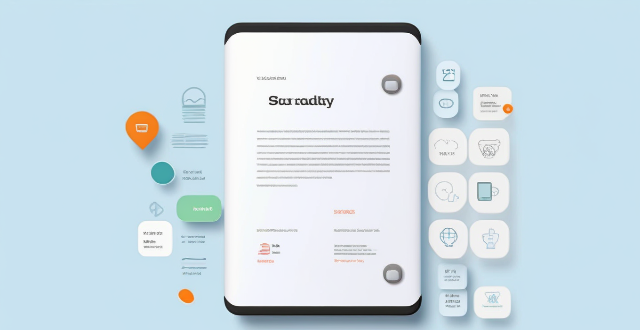
How much does it cost to purchase an app on the App Store ?
Purchasing an app on the App Store can vary in cost depending on the type of app and its features. There are two main types of apps available: free and paid. Free apps do not require any payment, while paid apps have a price listed next to them. Some apps may offer additional features or content through in-app purchases, which can range in price from a few cents to several dollars. Additionally, some apps may offer a subscription service for access to premium content or features, which typically renew automatically unless cancelled by the user. It is important to carefully read the description and reviews of an app before making a purchase to ensure that it meets your needs and budget.
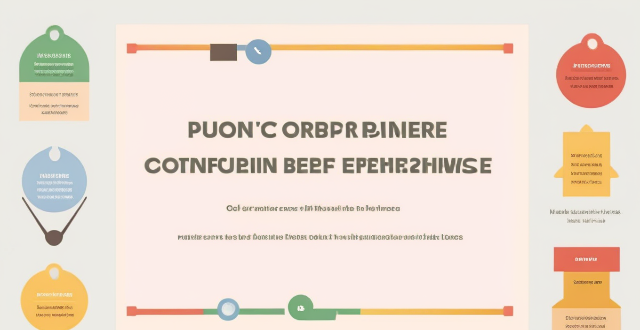
How do I get tickets for an idol concert ?
The article provides a comprehensive guide on how to obtain tickets for an idol concert. It outlines five main steps: researching concert details, preparation, being ready on sale day, exploring alternative methods, and employing additional tips and tricks. The first step involves gathering information about the concert date, time, venue, ticket prices, and on-sale details. Preparation includes creating accounts on ticketing platforms, having payment methods ready, ensuring a stable internet connection, and using multiple devices. On sale day, one should log in early, refresh continuously, and make a quick transaction. Alternative methods include purchasing at the box office, looking out for official presales, buying from authorized resellers, and checking for last-minute releases. Additional tips involve joining fan clubs, following social media for exclusive presales, and avoiding scams by only buying from authorized sellers. By following these steps and being persistent, one can increase their chances of securing tickets to see their favorite idol perform live.

Can I purchase travel insurance after booking my trip ?
The article discusses the possibility of purchasing travel insurance after booking a trip. It emphasizes that buying travel insurance early provides more comprehensive coverage, peace of mind, and potentially better prices. To purchase travel insurance after booking, one should research different policies, contact their travel agent or insurance company, provide relevant information, read the policy details carefully, and keep documentation safe. The article concludes that buying travel insurance early is generally recommended for optimal coverage and peace of mind during travels.

Can I use multiple promo codes for a single purchase ?
This topic summary discusses the possibility of using multiple promo codes for a single purchase, emphasizing general rules and common practices. Most platforms restrict the use of promo codes to one per order, but there are exceptions where code stacking is allowed under certain conditions. The benefits include greater savings, but it can also add complexity and risk abandoned shopping carts. To navigate this effectively, read terms carefully, check for updates, and contact customer service for clarification.

Is there a minimum purchase amount to qualify for a tax refund ?
The minimum purchase amount for tax refunds varies by country and product type. Other requirements include timeline, product type, receipts, and departure within a specific time frame. To claim a refund, save receipts, fill out forms, visit a customs office, submit documentation, and wait for the refund to be processed.

How can I ensure safe and secure payment when shopping internationally ?
When shopping internationally, it's important to ensure safe and secure payment. Here are some tips on how to do so: - Use a reputable payment method such as credit cards, debit cards, or digital wallets. - Check for security features like HTTPS, a lock icon in the address bar, and a clear privacy policy. - Keep track of your purchases by saving receipts, order confirmations, and shipping information. - Be aware of scams and research the company or seller before making a purchase.

What are the best practices for safe global shopping ?
Global shopping has become increasingly popular in recent years, with the rise of e-commerce platforms and international shipping options. However, it also comes with its own set of risks and challenges. To ensure a safe and secure global shopping experience, here are some best practices to follow: 1) Research the seller before making a purchase from an international seller. Look for reviews and feedback from other customers, and check the seller's reputation on trusted review sites like Trustpilot or ResellerRatings. 2) Use a secure payment method when shopping globally. Look for sellers that accept credit cards or reputable third-party payment processors like PayPal. Avoid using wire transfers or other unsecured payment methods. 3) Verify the shipping details before making a purchase. Check the estimated delivery time, shipping costs, and any customs fees that may apply. Choose a shipping option that includes tracking and insurance to protect your purchase during transit. 4) Be aware of customs regulations in both your home country and the seller's country. Some items may be prohibited or restricted, and there may be additional taxes or duties applied to your purchase. Make sure you understand these requirements before making a purchase to avoid any unexpected charges or delays. 5) Keep records of your global shopping purchases. Save copies of receipts, order confirmations, and any communication with the seller. These records can be helpful if there are any issues with your purchase or if you need to file a dispute with your payment provider or credit card company.

Can I claim a tax refund on online purchases when traveling abroad ?
Can I Claim a Tax Refund on Online Purchases When Traveling Abroad? When traveling abroad, it is possible to claim a tax refund on certain online purchases. However, the process and requirements can vary depending on the country you are visiting and the specific policies of the retailer or e-commerce platform. In this article, we will explore the different factors that can impact your ability to claim a tax refund on online purchases when traveling abroad. Key Factors to Consider: 1. Country-Specific Policies 2. Retailer or E-Commerce Platform Policies 3. Product Type 4. Purchase Amount 5. Timeline Steps to Claim a Tax Refund on Online Purchases: 1. Research Tax Refund Policies 2. Check Product Eligibility 3. Meet Minimum Purchase Requirements 4. Save Receipts and Documentation 5. Fill Out Tax Refund Forms 6. Submit Documentation and Receive Refund
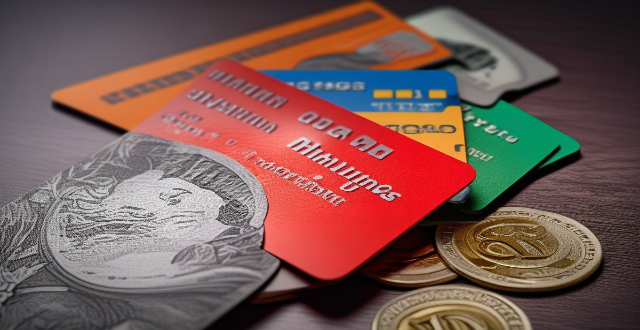
How do I use cashback rewards and credit card points to my advantage when shopping ?
Using cashback rewards and credit card points can save money and get more value for purchases. To maximize benefits, choose a suitable credit card, understand the rewards program, make smart spending decisions, redeem rewards wisely, and combine them with discounts and sales.
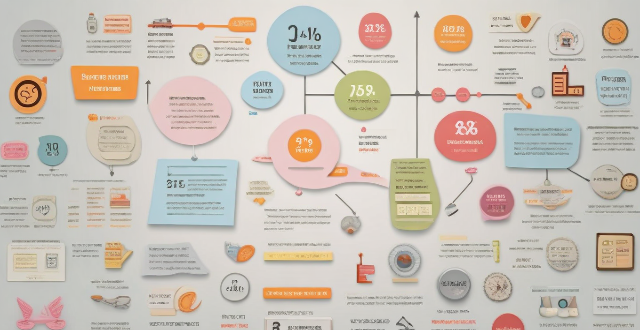
What is the return policy for items purchased during a limited-time promotion ?
When you purchase items during a limited-time promotion, it is important to understand the return policy associated with those purchases. The return policy for items purchased during a limited-time promotion may vary depending on the retailer or brand. Most retailers have a specified time limit for returns, which is usually stated in their return policy. The item must be returned in its original condition, including any packaging and accessories that were included with the purchase. Refunds are typically issued using the same method of payment as the original purchase. There are some exceptions to the general return policy for items purchased during a limited-time promotion, such as final sale items, customized items, and shipping and handling fees. To ensure a smooth return process, keep receipts and packaging, check the return policy before purchasing, and contact customer service if unsure.

Can I get a refund for an app I purchased on the App Store ?
You can request a refund for an app you purchased on the App Store, but there are certain conditions that must be met in order to qualify. You have 14 days from the date of purchase to request a refund, and the app must not have been downloaded or launched more than twice. You must also provide a valid reason for your request. To request a refund, open the App Store app on your device, tap on your profile picture in the top right corner, select "Purchase History" from the drop-down menu, find the app for which you want to request a refund and tap on it, tap on "Report" next to the app, and follow the prompts to submit your refund request. Be honest and clear about why you are requesting a refund, provide any relevant information or screenshots that support your request, and keep track of your purchase history to make sure you meet the eligibility criteria before submitting your request.

What do I need to know about VAT refunds when traveling internationally ?
VAT (Value Added Tax) is a consumption tax applied on products or services purchased within a country. International travelers may be eligible for a VAT refund if they purchase goods to take out of the country where they made the purchase, often referred to as "tax-free shopping". To get a VAT refund, travelers must check eligibility, get tax-free forms, keep receipts, procure documents from customs, claim their refund, and be aware of time limits, minimum purchase amounts, fees, and currency conversion. Tips for successful VAT refunds include planning ahead, consolidating purchases, tracking deadlines, verifying retailer participation, and consulting with experts. By understanding the VAT system and following these guidelines, international travelers can potentially save money on their shopping experiences.

How long before my trip should I buy travel insurance ?
Travel insurance is a crucial component of any trip, offering coverage for unexpected events such as medical emergencies, trip cancellations, and lost luggage. The best time to buy travel insurance depends on various factors, including the timing of your purchase, trip details, personal situation, and research. Timing matters when buying travel insurance. It's recommended to buy early for peace of mind, better pricing, and more options. However, waiting too long can increase the risk of forgetting, limit options, and create coverage gaps. Trip details such as destination, length of stay, and activities should also be considered. Personal situation factors like health status, financial protection, and travel companions' needs should also influence the timing of your purchase. Practical steps include researching policies, comparing online, reading reviews, consulting a broker, completing an online application, confirming details, and keeping records. Ideally, travel insurance should be purchased at least a few weeks before the trip to ensure adequate coverage and avoid last-minute stressors.

What should I keep in mind while shopping during the discount season ?
Shopping during the discount season can be an exciting experience, but it's important to keep certain things in mind to ensure that you make wise purchases and don't overspend. Here are some key points to consider: 1. Set a budget and stick to it. 2. Make a list of items you need and want to purchase. 3. Research prices and compare them across different stores. 4. Check for quality and read reviews before making a purchase. 5. Look for extra discounts and promotions. 6. Avoid impulse buying by thinking before you buy and waiting for 24 hours if unsure. 7. Check the return policy and keep receipts in case you need to return or exchange an item later on. By following these tips, you can make wise purchases and avoid overspending during the discount season.